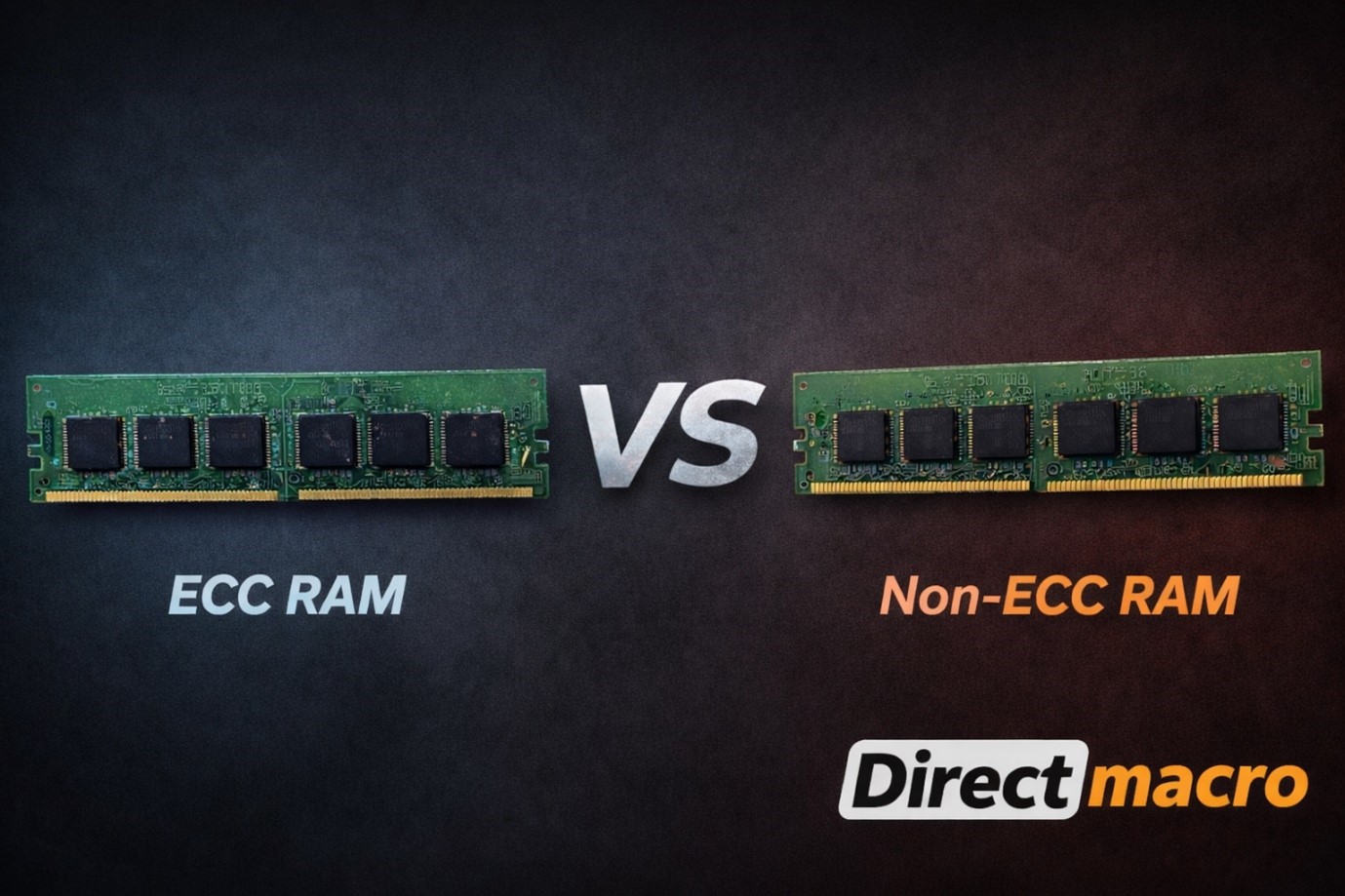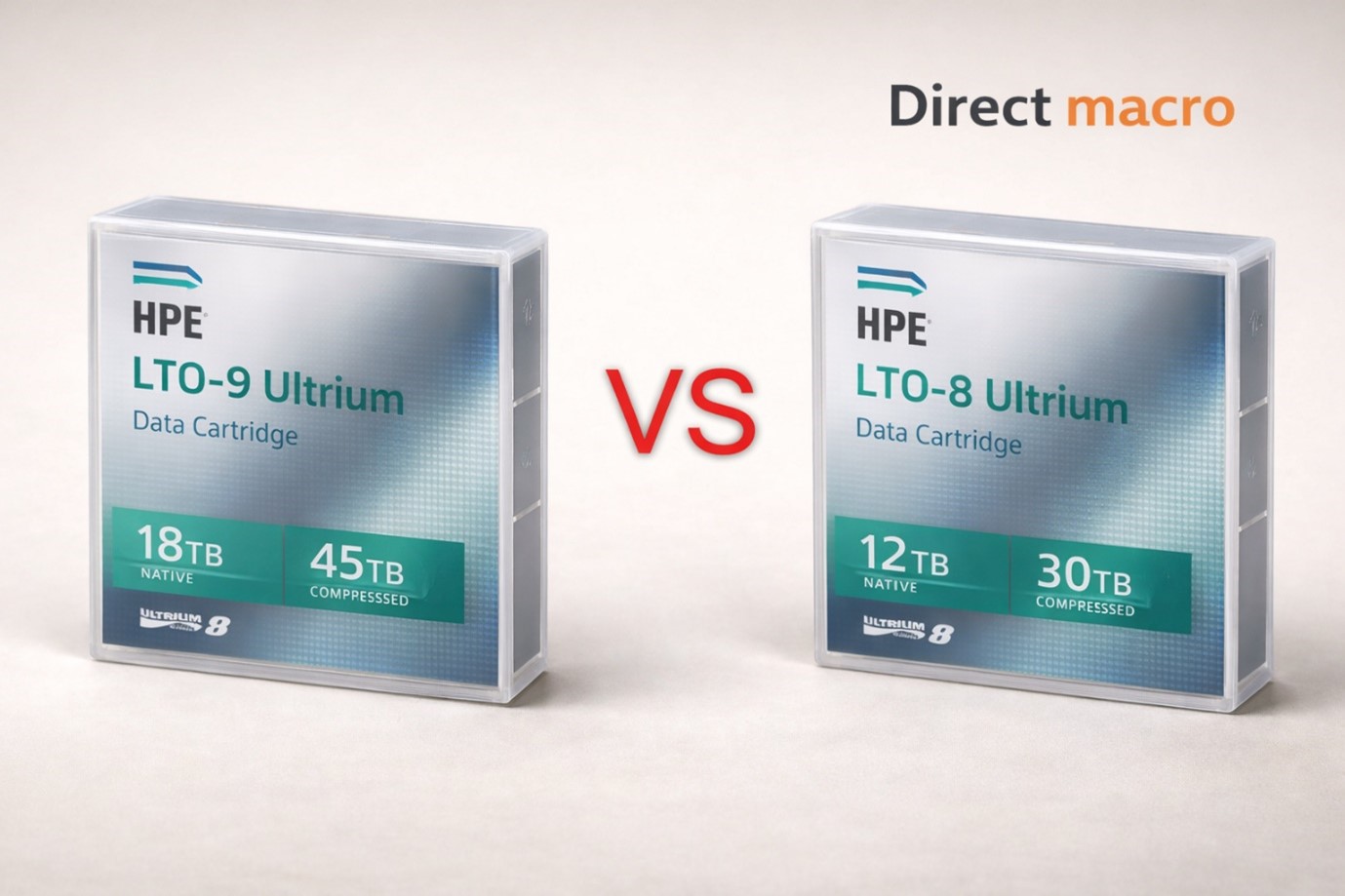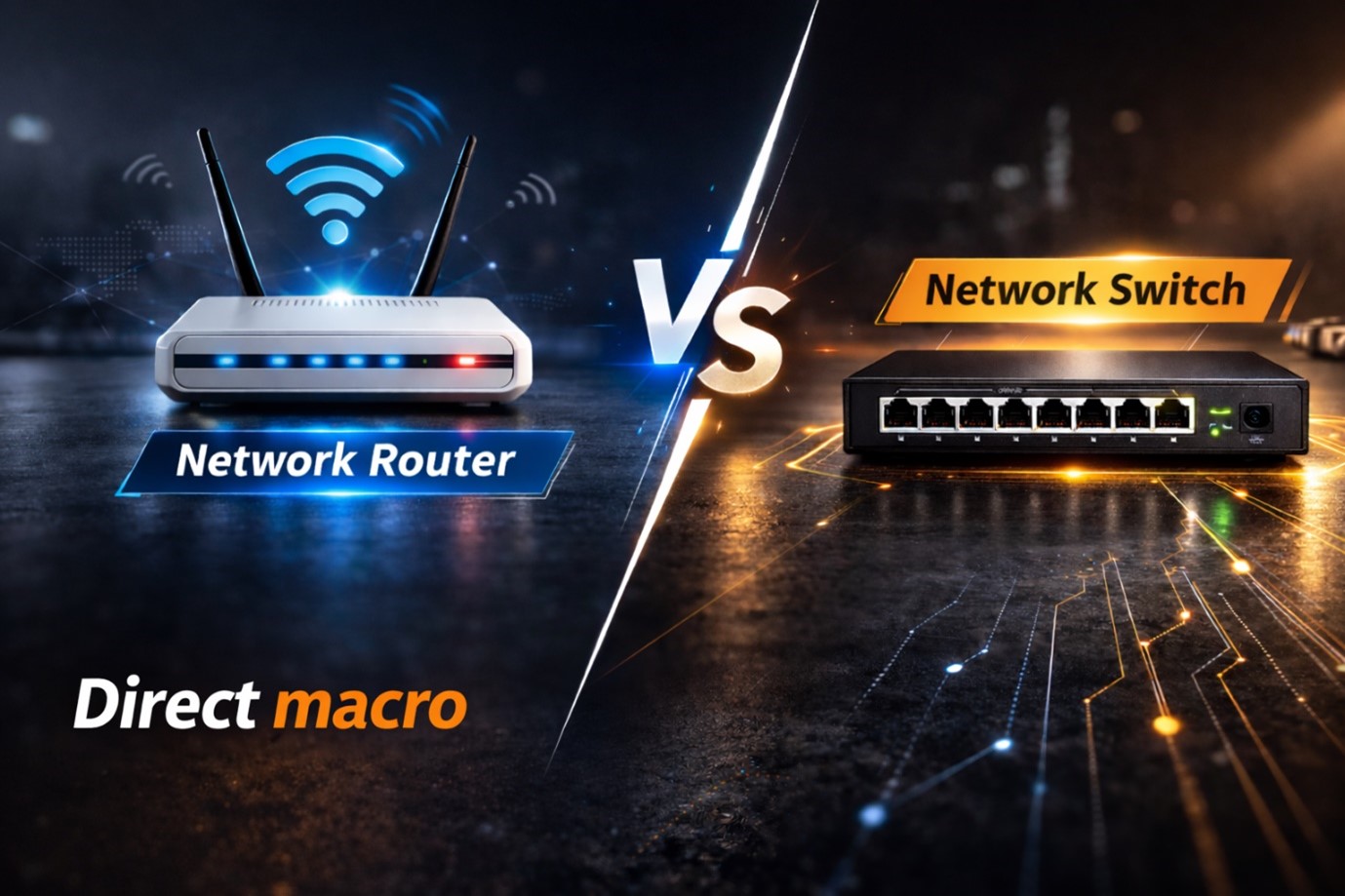Exploring the Advantages and Disadvantages of Using External Hard Drives: A Comprehensive Guide
As digital technology rapidly changes our world, creating and storing vast amounts of information and data has become necessary for individuals and businesses. One of the most viable options for storage solutions is external hard drives. These devices come in a wide range of sizes and shapes and offer a multitude of benefits, such as increased storage capacity, portability, and ease of use. Yet, there are also possible drawbacks to consider, such as the possibility of damage, security risks, and connectivity issues.
In this blog, we will delve in-depth into the pros and cons of external hard drives along with providing you with the best and budget option. Moreover, many users think portable and external hard drives are the same. This is not the case; we will explain it in our portable vs. external hard drives section. So, whether you need to store and manage large amounts of data or want to expand your storage options, this guide will provide you with all the necessary guidelines to decide whether a branded external hard drive is the proper storage solution for you.
Advantages of External Hard Drives
External hard drives offer several advantages over internal hard drives, including greater storage capacity, portability, user-friendliness, and backup solutions. They make ideal storage solutions for individuals and businesses accessing large volumes of data quickly and reliably. This section will discuss the advantages of external hard drives in detail.
Large Storage Capacity
External hard drives offer a significant advantage in terms of storage capacity. With capacities ranging from 500GB to 10 TB external hard drive, such as Seagate, Western Digital, and Toshiba, provide vast storage space. This makes them superb for storing huge files, such as high-resolution images, music, and videos, which can take up a lot of space on your computer’s internal hard drive. The additional storage capacity provided by external hard drives also helps keep your computer running smoothly.
Portability
Another significant advantage of external hard drives is their portability. Unlike internal hard drives built into your computer, external hard drives can be easily removed and taken on the go. This makes them an excellent choice for individuals who need to access their files from multiple locations, such as students or remote workers. Additionally, external hard drives are designed to be small and lightweight, making them easy to carry around in a backpack or purse.
Easy to Use
External hard drives are effortless to use. You need to link them to your computer’s USB port, and they will be recognized automatically by most operating systems. Once linked, you can drag and drop files to and from the external hard drive, just like you would with any other folder on your computer. Many external hard drives also come with pre-installed backup software, making it easy to set up automated backups of your files.
Backup Solution
External hard drives are also a popular choice for backing up important files. A backup of your files can be essential in case of a system or data failure. Regularly backing up your data to a branded external hard drive ensures that your files are safe and easily recoverable in an emergency. Some branded external hard drives also offer password protection and encryption options to keep your data secure.
Backup Options To Help You Out
Here are some popular hard drive backup software options, both free and paid:
Free options:
- EaseUS Todo Backup Free: This user-friendly software offers free features, including file, folder, partition, and system backups. It also allows for scheduling and incremental/differential backups.
- Paragon Backup & Recovery Free: This free version provides features like full computer, partition, file, and folder backups. It also includes an impressive recovery system that can be used even if you can’t boot into Windows.
- Macrium Reflect Free: This free edition offers basic backup functionality for essential files and folders. It’s a good option for simple backup needs.
- Clonezilla: This open-source software is a powerful option for creating disk images, which can be used to restore your entire system in case of a crash.
Paid options
- AOMEI Backupper: This software provides a wide range of features, including file/folder backup, system backup, disk backup, partition backup, and incremental/differential backups. It also has a user-friendly interface and is a good option for both beginners and experienced users.
- Veeam Backup & Replication: This enterprise-grade software is a powerful solution for backing up virtual machines and physical servers. It’s a good option for businesses that need a robust backup solution.
- Carbonite: This cloud-based backup solution offers automatic backups to the cloud, making it a good option for users who want offsite protection for their data.
Your best hard drive backup software will depend on your specific needs and budget. Consider factors such as the type of data you need to back up, how often you need to back it up, and whether you need local or cloud-based storage.
More Benefits of External Hard Drives
Some other important advantages of external hard drives to give you more information in less read time:
- Offline Access to Data: Unlike cloud storage solutions, you can access your data almost anywhere. You need to have a power source, though.
- Data Security: You can use your external drive on someone else’s computer without worrying about them saving on their computer and risking its privacy.
- Your Data Is For Your Eyes Only: You can access your data by connecting and disconnecting your external drive when you want. You don’t share it with any third party, which makes it for your eyes only.
Disadvantages of External Hard Drives
While external hard drives offer several advantages, they also have several potential disadvantages. These include fragility, security risks, connectivity issues, and cost. Understanding these drawbacks is important before using an external hard drive as your primary storage solution. Let’s look into the disadvantages of external hard drives in more detail to help you decide whether they are the right choice for your specific needs.
Fragility
One of the most significant disadvantages of external hard drives is their fragility. Unlike internal hard drives, which are protected inside your computer, external hard drives can be easily damaged if dropped or knocked over. This can lead to data loss or corruption, which can be costly to recover. To mitigate this risk, it’s important to carefully handle your external hard drive and invest in a protective case to minimize the risk of damage.
Security Risks
External hard drives pose a security risk. If a device is misplaced or looted, sensitive information could fall into the wrong hands and be compromised. To reduce this risk, take appropriate security steps such as encrypting data or keeping it in an isolated area when not in use – in addition to using strong password protection on the external hard drive.
Connectivity Issues
External hard drives rely on a USB connection to transfer data, which can be slow and unreliable. If the connection is interrupted, it can cause data loss. Additionally, some older computers may not support the latest USB standards, limiting data transfer speed and impacting overall performance. To avoid connectivity issues, using high-quality USB cables and ensuring your computer is compatible with the external hard drive before purchasing it is important.
Cost
External hard drives can be expensive, particularly if you require a large-capacity drive. For example, an 8TB portable hard drive can cost upwards of $200, while a Seagate 2TB external hard drive can range from $60 to $80, depending on the retailer. However, cheap external hard drives are available on the market, such as a Seagate 500GB external hard drive that can be purchased for under $40. When considering the cost of an external hard drive, it’s important to weigh the potential benefits against the cost and determine if it’s the right investment for your needs.
External Hard Drives for Laptops
External hard drives can also be a valuable addition to your laptop setup. An external hard drive can provide the additional storage space required to work efficiently, especially for individuals who need to store large amounts of data, such as photographers or video editors. Additionally, if you’re using a laptop with limited internal storage, an external hard drive can help expand your available storage space without replacing your existing hard drive.
When choosing an external hard drive for your laptop, consider a few things.
- First, ensure that the hard drive is compatible with your laptop’s operating system.
- Secondly, consider the hard drive’s dimension and capacity.
- Lastly, check its portability and connectivity options to save yourself from future problems.
Seagate External SSD Hard Drive
Seagate is one of the most popular hard drive brands on the market. In addition to traditional hard drives, Seagate offers a range of external SSD for laptop, Server Hard Drives and Server SSD Drives. SSD, or solid-state drive, technology offers faster data transfer speeds and improved durability over traditional external HDDs. Seagate’s external SSD hard drives range in capacity from 500GB to Seagate 2 TB external hard disk and more, making them an excellent option for individuals who need fast, reliable storage solutions.
Read More: Seagate Exos X16 HDD: An Unparalleled Storage Solution for Hyperscale Markets
Toshiba Canvio Basic Range in Portable Hard Drives
Toshiba external hard drives are renowned for their reliability and robust performance, catering to a wide range of storage needs. These devices are perfect for professionals and casual users alike who seek secure and portable storage solutions. The Toshiba Canvio Basics is a standout model, which offers up to 4TB of storage in a sleek, compact design. This hard drive is USB 3.0 compatible for fast data transfer rates, and its plug-and-play functionality ensures ease of use with both Windows and Mac computers. The Canvio Basics is ideal for those who need substantial, easy-to-use storage on the go.
Western Digital (WD) External HDDs Series
Western Digital (WD) is another leading name in the external hard drive industry, renowned for its wide range of reliable and high-performing storage solutions. Among their most acclaimed products is the WD My Passport series. This line of external HDDs is favored for its robust security features, including built-in 256-bit AES hardware encryption and password protection. Available in capacities from 1TB to 5TB, the My Passport drives cater to diverse storage needs. They are formatted for Windows systems but can easily be reformatted for Mac users. With a compact design and USB 3.0 connectivity, the My Passport offers both convenience and speed for everyday use.
Cheap External Hard Drive for PC
Cheap external hard drives for PC can provide a reliable and cost-effective storage solution. Seagate Expansion Portable Drive offers up to 1TB of storage capacity and is small and lightweight, making it easy to take with you on the go. Toshiba Canvio Basics Portable Hard Drive offers up to 4TB of storage capacity and comes with a USB 3.0 connection for 5gb/s fast data transfer speeds. While affordable options may not offer all the features of more expensive drives, they can still provide a reliable storage solution for students and small businesses.
Portable vs External Hard Drives: Which One Is Reliable
As promised earlier, we return to the section that will set the difference between portable and external hard drives and help you choose between them.
Difference Between External and Portable Hard Drives
There are a few key factors to consider. Portable hard drives are designed to be more compact and easily transportable than external hard drives. They are typically smaller and do not require an external power source, making them ideal for individuals who need to move around frequently. However, portable hard drives often have a smaller storage capacity than external hard drives, with most models offering up to 5TB of storage space.
On the other hand, external hard drives are typically larger and require an external power source to function. However, they also offer a much larger storage capacity, with models available up to 10TB. External hard drives are generally more durable than portable hard drives and provide faster data transfer speeds. Choosing the right type of hard drive ultimately depends on your specific needs and preferences.
- Some Cons to Keep In Mind Regarding Portable Hard Drives
-
- Less Fails Safe: Portable drives are light and small, which makes them more susceptible to moisture, water, fire, and overheating. This can lead to malfunctioning which can result in corruption.
-
- Theft Prone: Because of their size, the probability increases, but security decreases. Once out of sight, it can be fetched and hidden quite easily and used by anyone. Password protection can keep it safe for a time only.
FAQs
- What is the difference between an external and a portable hard drive?
Portable drives are more compact in size, do not require a power source from outside, and are handy to take along with you; however, they generally have less storage capacity (up to 5TB). External drives are larger and require a power source, but they can store more data (up to 10TB) and have a longer lifespan.
- What are the main advantages of using an external hard drive?
Essentially, the features include ample storage capacity (up to 10TB), portability so files can be accessed from any location, user-friendliness through a simple plug-and-play USB connection, and, finally, being a must-have backup device for precious data.
- What are the potential drawbacks or disadvantages of external hard drives?
The most significant drawbacks are that they are fragile (can be damaged if dropped), may pose security risks if lost or stolen, can have connectivity issues with slower USB ports, and that large-capacity devices cost more initially.
- Are external hard drives suitable for use with a laptop?
Indeed, external hard drives are perfect for laptops, especially for those who need to save large files (like video editors) or just need to extend the limited internal capacity. Make sure the hard drive is compatible with your laptop’s operating system and meets your portability requirements.
- Is a Solid-State Drive (SSD) or a traditional Hard Disk Drive (HDD) better for an external drive?
External SSDs (like Seagate) are better than standard HDDs for data transfer speeds and write cycles. On the contrary, HDDs are usually more affordable per gigabyte for huge storage capacities.
Final Thoughts
External hard drives can be a game-changer when managing your data. Their large storage capacity, portability, ease of use, and backup solutions offer many advantages over traditional internal hard drives. However, they also have potential drawbacks, including fragility, security risks, connectivity issues, and cost. It’s essential to consider these aspects carefully before buying an external hard drive.
Don’t settle for subpar storage solutions – upgrade your data management with Direct Macro today! One of the best IT hardware suppliers in the United States.
Do you need advice on buying or selling hardware? Fill out the form and we will return.

Sales & Support
(855) 483-7810
We respond within 48 hours on all weekdays
Opening hours
Monday to thursday: 08.30-16.30
Friday: 08.30-15.30











